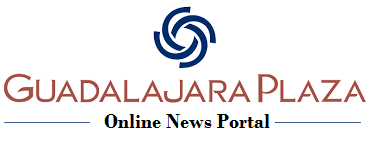Tips to Understand and Streamline Your Restaurant Accounting
Effective accounting procedures are essential to a restaurant’s success. We will look at key suggestions in this post to assist you in comprehending and streamlining your restaurant accounting. You can control your restaurant’s financial health more by learning the fundamentals of restaurant finance, putting good accounting systems in place, tracking and managing costs, improving financial reporting, ensuring regulation, performing routine analysis, and getting expert help when necessary. Let’s start with these suggestions to improve your knowledge and streamline the accounting procedures at your business.
What is Restaurant Accounting?
The process of documenting, evaluating, and overseeing a restaurant’s financial transactions and business operations is referred to as restaurant accounting. It includes keeping track of revenue, costs, inventory, labor costs, and other financial factors unique to the restaurant sector. In the cutthroat restaurant business, preserving financial stability and profitability requires effective restaurant accounting procedures.
Tips to Streamline Restaurant Accounting
The following are the tips to streamline restaurant accounting:
●Implement Effective Accounting Systems
The key to optimizing restaurant accounting is to implement efficient accounting systems. Choose an accounting program that is trustworthy and appropriate for your restaurant’s demands first. Create a detailed chart of accounts that appropriately classifies revenue and expenses. You can increase productivity, reduce mistakes, and gain more understanding of your restaurant’s financial health by putting in place reliable restaurant accounting services. To save time, automate rote processes like creating invoices and financial reports.
● Track and Manage Costs
Effective restaurant accounting requires monitoring and controlling expenditures. Implement inventory management systems to keep track of food expenditures and minimize waste. Utilize effective employee scheduling and precise timekeeping to save labor expenditures. Review vendor contracts frequently and bargain for lower prices to keep costs under control. Use cost-cutting techniques, including portion control and waste minimization techniques. You may find areas of overspending, make wise decisions to cut costs, and increase overall profitability in your restaurant business by regularly monitoring and managing expenditures.
● Ensure Compliance with Tax and Regulatory Requirements
In restaurant accounting, it is crucial to meet all tax and regulatory requirements. Keep up with any changes to tax laws and regulations that affect the restaurant business. Ensure that all financial transactions, including sales, costs, and payroll, are accurately recorded. Consider speaking with a certified public accountant or tax specialist for advice on tax planning and compliance. You may avoid fines, keep your record clean with law enforcement, and run your restaurant business legally by proactively handling your tax and regulatory requirements.
● Perform Regular Financial Analysis
Effective restaurant accounting depends on performing routine financial analysis. Review your restaurant’s financial statements monthly or quarterly to evaluate its success. Consider crucial financial measures like ROI, gross margin, and labor and food expenditures as a percentage of sales. Use financial data to drive profitability, operational excellence, and well-informed company decisions. Regular financial analysis guarantees proactive financial management and improves your restaurant’s long-term performance.
● Streamline Financial Reporting
For effective restaurant accounting, financial reporting must be streamlined. Put in place standardized outsourced bookkeeping services to guarantee the accuracy and consistency of financial accounts. Review and analyze financial information regularly to get knowledge of important performance metrics. Increase data accuracy, improve decision-making, and more effectively inform stakeholders about your restaurant’s financial health by streamlining financial reporting.
●Seek Professional Help When Needed
Getting professional assistance when necessary is crucial for the best possible restaurant accounting. Know when to hire a qualified accountant or bookkeeper with experience in the restaurant business. Utilize their knowledge for tax preparation, accounting counseling, and strategic financial planning. Professional assistance may offer insightful advice, guarantee compliance, and support you in making decisions to maximize your restaurant’s profitability and success.
Conclusion
Restaurant accounting must be understood and simplified if you want your company to succeed. You may make wise judgments, increase profitability, and establish a solid financial base for the expansion and success of your restaurant with optimized accounting procedures.










